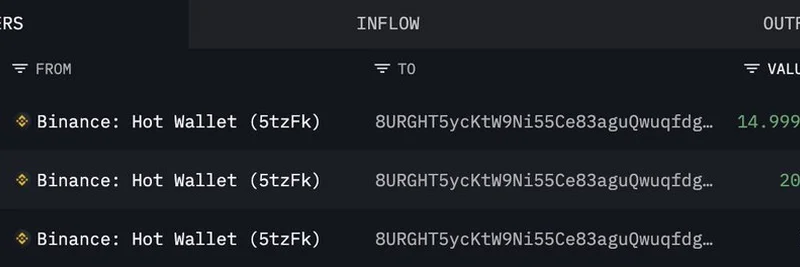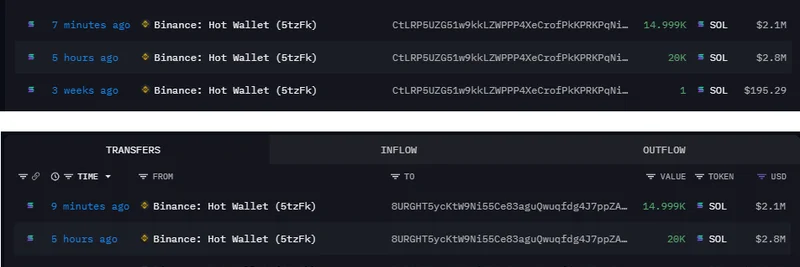At a recent gathering of financial minds during Citadel Securities’ Future of Global Markets 2025 event, Micky Malka, founder of Ribbit Capital, dropped some game-changing thoughts on the future of tokens. If you're deep into meme tokens or just dipping your toes into blockchain, this is the kind of talk that bridges high-finance theory with the wild world of crypto memes. Malka outlined what he calls the "Ribbit Token Thesis," painting a picture where tokens aren't just speculative assets but the backbone of tomorrow's economy.
Let's break it down simply. Malka envisions a world where every company turns into a "token factory." Forget the hype around "crypto"—tokens are evolving into smart, machine-readable digital objects. They're like programmable building blocks that software can use to handle identity checks, financial advice, or instant money transfers. In essence, tokens become the smallest, most essential units in a digital economy, much like atoms in the physical world.
Malka categorizes these tokens into three powerhouse types that could revolutionize how we interact with money and data:
Identity Tokens: These are your digital passport. They bundle up verified info like your accounts, health records, transaction history, permissions, and even your social trust network. Every deal or interaction starts here—with a quick, token-based verification asking, "Is this really you?" No more clunky logins or endless forms; it's seamless and secure.
Expert/Knowledge Tokens: Think AI on steroids, packaged neatly as tokens. These could be your personal financial advisor, an automated underwriter for loans, a wealth manager, tax expert, or even a healthcare AI consultant. They're instantly accessible, verifiable by machines, and ready to provide expert guidance without human delays.
Asset Tokens: This is where traditional finance meets blockchain. We're talking programmable money like Bitcoin, Ethereum, or stablecoins, but also tokenized versions of stocks, repos (short-term loans), mortgages, bonds, and other TradFi (traditional finance) assets. Everything becomes movable, tradable, and automatable in real time.
When you combine these—identity for verification, expertise for smart decisions, and assets for value transfer—you get an automated economy that runs like clockwork. Transactions happen instantly, globally, and with minimal friction.
But here's the real kicker from Malka's talk: tokens won't stay in the spotlight. They'll fade into the infrastructure, just like how we don't think about TCP/IP protocols when browsing the web. They'll be the invisible rails powering every app, handling identity, intelligence, and money behind the scenes. As Malka puts it, “Tokenization won’t be a product. It’ll be infrastructure.”
This thesis has huge implications for the biggest companies of the next decade. They'll be token factories, creating, distributing, and coordinating through tokens the way today's tech giants use APIs and databases. It's a shift from centralized control to decentralized, token-driven ecosystems.
Now, why does this matter for meme token enthusiasts? Look no further than the buzz around $TIBBIR, a frog-themed meme token that's cleverly spelled "RIBBIT" backward. The community sees eerie connections—Malka's Ribbit Capital recently updated its website with a backward 'R' in "Ribbit," and sections teasing "Token" for 2025. Posts on X (formerly Twitter) are abuzz with speculation that $TIBBIR could embody this token thesis in meme form, potentially positioning it as a cultural icon in the token economy.
For instance, one X user quipped, "$tibbir the one token to rule them all," alongside a Lord of the Rings-inspired frog image. Another highlighted how $TIBBIR pumped from $140 million to $450 million market cap when Ribbit's site went live, hinting at stealth accumulation and future growth. Meme tokens like $TIBBIR thrive on narrative and community, and Malka's vision provides a serious underpinning: if tokens become ubiquitous infrastructure, memes could evolve from jokes to functional assets in identity, expertise, or even asset representation.
Of course, this is all speculative fun in the meme space, but it's grounded in real fintech evolution. Ribbit Capital, under Malka, has backed heavyweights like Coinbase and Robinhood, so his predictions carry weight. For blockchain practitioners, this thesis is a call to action—dive into token tech now to stay ahead.
Check out the original thread on X for more frog-filled reactions: Micky Malka's Ribbit Token Thesis Thread.
As the meme token landscape heats up, keep an eye on how visions like this intersect with playful projects like $TIBBIR. It could be the hop toward a tokenized future.



